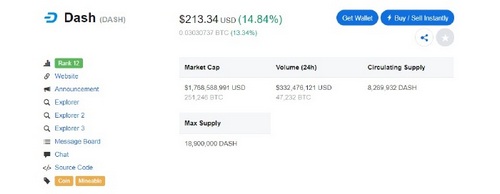The pilot commercial trade transaction saw the firm – which owns Mercedes-Benz among other brands – process the data required to exchange payments with engineering firm and parts builder Dürr, according to a press release sent to CoinDesk on Wednesday. German bank Landesbank Baden-Württemberg (LBBW) was also involved in the trade.
Automaker Daimler has carried out its first transaction on the blockchain-based Marco Polo trade finance network.
The pilot involved an order and delivery agreement for a balancing system from Dürr subsidiary Schenck arranged over Marco Polo. Payment was prearranged through a conditional commitment from Daimler’s bank.
Once the ordered equipment was delivered, the fulfillment data was entered onto Marco Polo and automatically reconciled with the agreed transaction data, thus triggering an irrevocable payment obligation.
Founded by startups R3 and TradeIX, Marco Polo is built on R3’s Corda blockchain platform. The network aims to deliver real-time connectivity, boost transparency in trading relationships and lower barriers to accessing capital.
Currently, arranging traditional paper-based payments for international trade transactions is inefficient and and slow, requiring multiple systems and a number of intermediaries such as logistics providers, insurers, customs authorities, according to LBBW’s announcement.
The pilot – conducted in “minutes instead of days” – had persuaded Dürr and Daimler that blockchain can make the process “faster and simpler”, said the bank.

Susanne Schlegel, CFO of Schenck and Dürr Division Measuring and Process Systems, said:
“We focus on efficiency increases not only with regard to our machines and systems, but also to our business processes. The successful pilot project between Daimler and LBBW demonstrates the intrinsic efficiency potential of digital trade finance processes. Innovative platforms and technologies such as Marco Polo and Corda allow us to reduce complexities in order fulfillment – to the benefit of all participants”
The ability to automatically trigger payments was a milestone for the network, announced in August. Marco Polo’s first such transaction involved LBBW and Commerzbank and saw logistics provider Logwin AG adding data to the blockchain to initiate the payment obligation.
Marco Polo has also announced notable new members in recent weeks, with both Bank of America and Mastercard signing up to the project seeking new efficiencies in their trade finance businesses.
CZ Insists That DDoS Attacks Were Foul Play From Binance Competitors
As Zhao told Cointelegraph on May 4, the April 29 attack was “well-coordinated” and focused on making Binance services unavailable in some countries of Asia.
Competitors behind the attacks?
Zhao emphasized that there are “a number of tell-tale” signs that such attacks came from competing exchanges.
In the statement, Binance’s CEO stated that DDoS attacks were more expensive for hackers than for the exchange itself.
CZ provided more details regarding specific DDoS targets:
“The attacks focused on all of our public endpoints in those targeted regions simultaneously. We use a wide range of caching, clustering, and distribution services to optimize the performance of user access from every corner of the world. And for each region, we use different combinations of services and architecture.”
Allegedly “black media” campaign against Binance
On the other hand, Zhao claimed that there are some well-coordinated “black media” efforts against Binance, citing the Chinese industry as an example. There, he claims that there is a “whole industry of black media” that is responsible for writing negative articles “until you pay them.”
Binance’s CEO claims that these “black media” accept payments from Binance’s competitors so that they continue to write more negative articles against them.
Following the same line, CZ commented on the following:
“If you have been in the industry for any length of time, you know who they are. It’s common knowledge to the Chinese community too, but somehow the industry still exists. Within 5 minutes of the attacks showing minor impact, long articles about how our services are unreliable and all the negative things you can blame on Binance were published.”
Returning to the DDoS attacks, he clarified that there were 2nd wave and 3rd wave attacks on last Thursday and Friday, but they did not have an impact since the exchange had taken measures to defend itself.
Binance’s volume surged to an all-time high
Zhao highlighted that, at the time of the attack, Binance hit an all-time high in trading volume, clocking in at $17 billion equivalent in 24 hours of trading volume following the attack.
As reported by Cointelegraph at the beginning of March, DDoS attacks targeted OKEx and Bitfinex, and there were some suspicions of a possible relationship with Binance’s attack.


